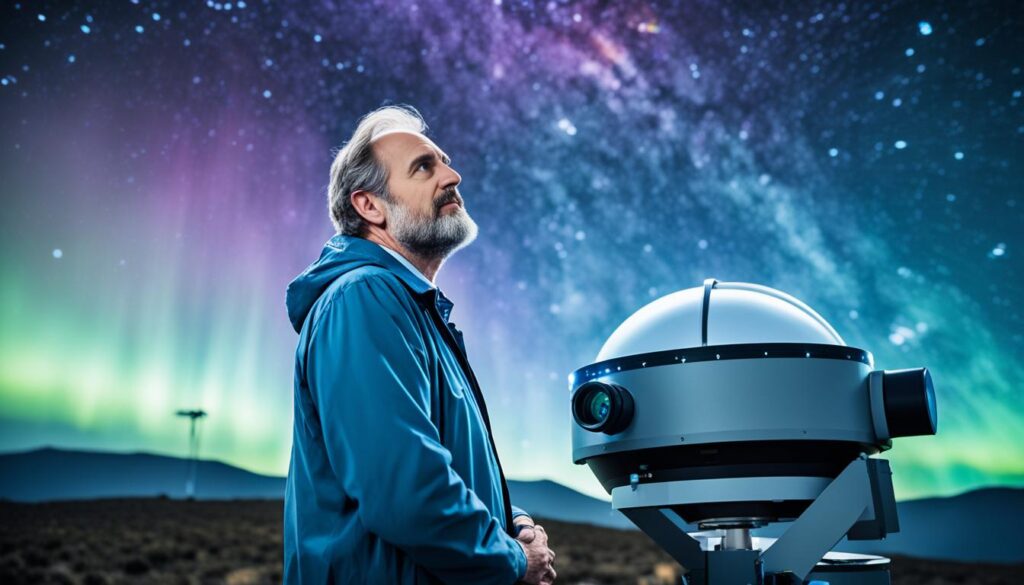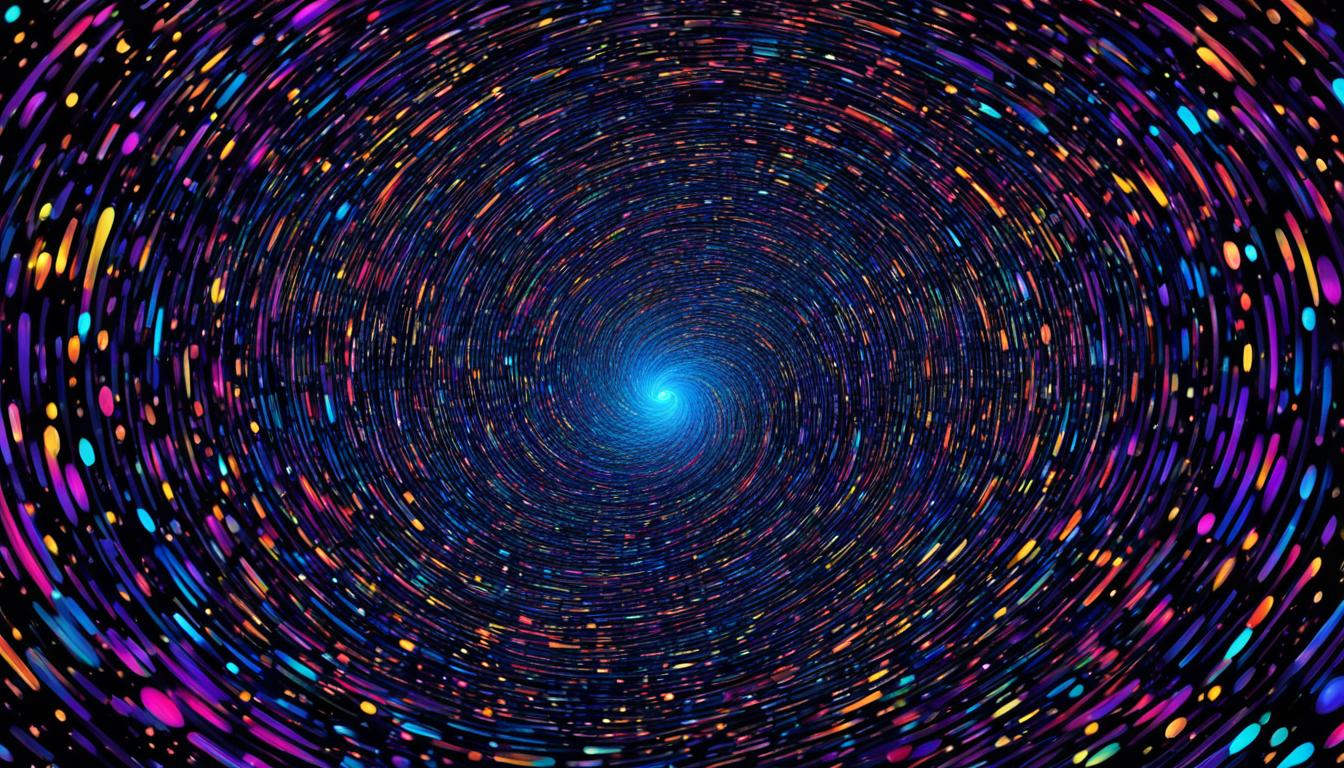Evidence of the Big Bang Was Found by Accident
In 1964, a chance discovery shook the foundations of cosmology. Two scientists at Bell Labs found evidence that confirmed the Big Bang theory. This accidental Big Bang discovery changed our view of the universe forever.
Arno Penzias and Robert Wilson were not searching for the universe’s birth. They were working on a project for satellite communication. But a strange noise in their equipment led them to a groundbreaking discovery.
This noise was the cosmic microwave background radiation. It’s a faint glow that fills all of space. This light is the oldest in the universe, proving that everything started with a massive explosion.
Key Takeaways
- Penzias and Wilson accidentally found evidence of the Big Bang in 1964
- The discovery happened during a Bell Labs experiment
- Cosmic microwave background radiation was the unexpected find
- This radiation is leftover light from the early universe
- The accidental discovery strongly supported the Big Bang theory
- It changed our understanding of how the universe began
The Serendipitous Detection of Cosmic Microwave Background

Arno Penzias and Robert Wilson made a huge discovery with Bell Labs’ six-meter Horn Antenna. Their work led to a groundbreaking finding. They found a background noise that they couldn’t explain.
At first, they looked into many possible causes for this signal. They even thought it might be from pigeon droppings on the antenna. But after checking all earthly sources, they found something amazing.
This signal was the Cosmic Microwave Background (CMB) radiation. It’s the oldest light in the universe. This discovery proved the Big Bang theory right, showing how the universe began.
This finding shows how important unexpected discoveries are in science. It shows how research can lead to big breakthroughs, even when not expected. The CMB detection proves the value of curiosity and open-mindedness in understanding the universe.
Accidental Big Bang Discovery: A Turning Point in Cosmology
The chance find of cosmic microwave background (CMB) radiation was a game-changer in astronomy. It proved the Big Bang theory right, which scientists had suggested for years. This discovery changed how we see the universe’s creation and growth.
This surprise led to a Nobel Prize in Physics for the discoverers. It started a new wave of research, with projects like BICEP2 aiming to find gravitational waves from the early universe. The science world moved from small teams to big groups with new tools to explore the cosmos. This collaboration marked a turning point in the field, enabling unprecedented advancements in our understanding of the universe. As researchers delved deeper into the mysteries of cosmic phenomena, the legacy of scientific pioneers became ever more relevant. The dynamite invention and Alfred Nobel not only transformed fields such as construction and mining but also inspired future generations to push the boundaries of knowledge in physics and beyond. As new discoveries emerged, they underscored the importance of innovation and teamwork in the quest to unveil the secrets of the cosmos.
The CMB discovery changed cosmology. It made a once-debated idea a widely accepted model of the universe. This key moment in astronomy opened new questions about our cosmic beginnings. Today, scientists keep building on this chance find, expanding our understanding of the universe.











